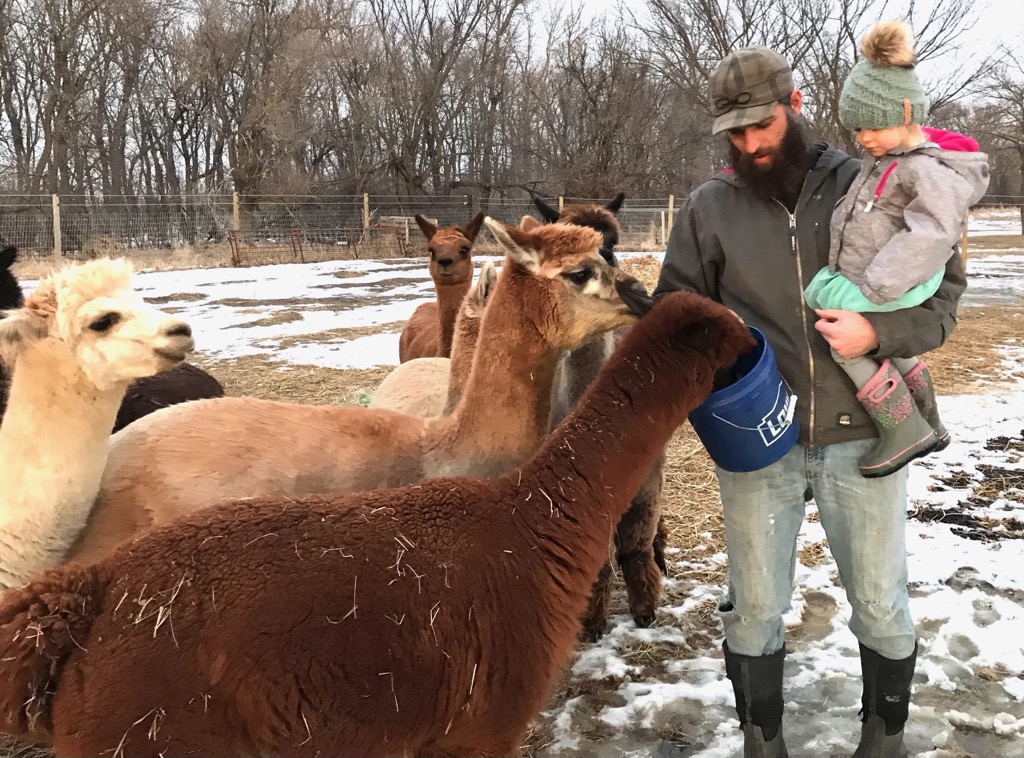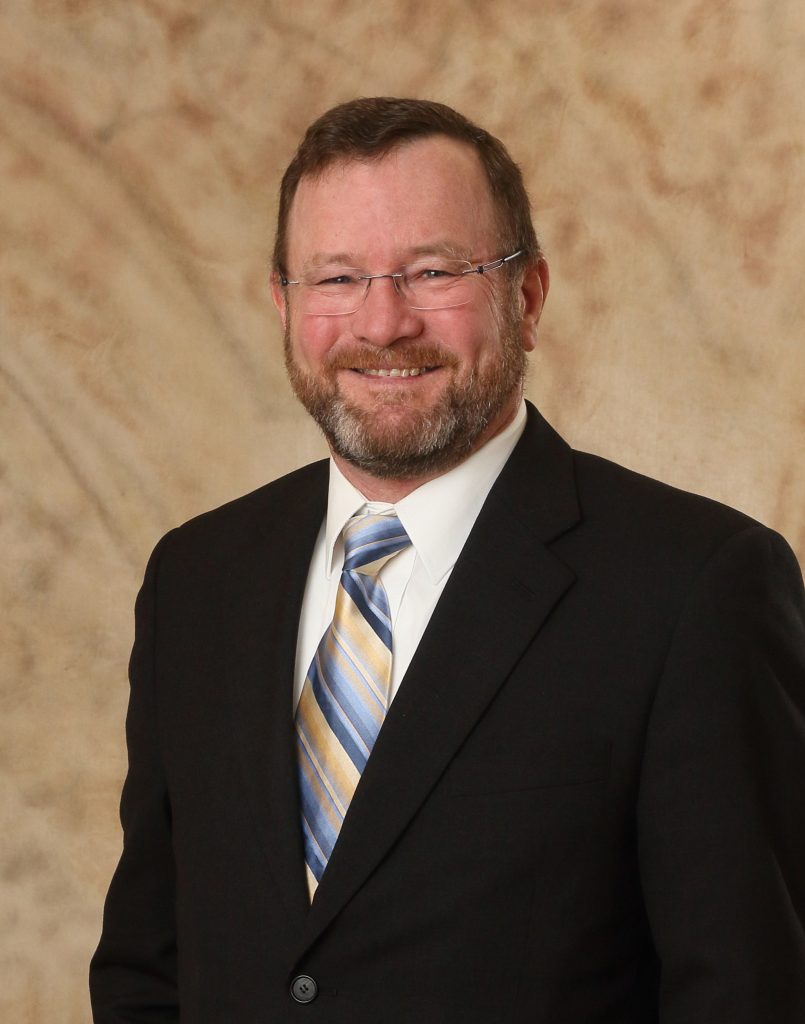Grassroots Policy Set by Farmers & Ranchers for Farmers & Ranchers

HURON, S.D. – Most family farmers and ranchers need a second job. In fact, according to the U.S. Department of Agriculture (USDA), 89.6 percent do not earn the majority of their income from their agriculture operations. A motivating fact if ever there was one, said U.S. Secretary of Agriculture, Tom Vilsack in his March 1 address to family farmers and ranchers during the 2021 Virtual National Farmers Union Convention.
“I cannot think of a more significant statistic than that to suggest and urge all of us to work on transforming our food system in this country so that more farmers, ranchers and producers have a chance to get the majority of their income from farming, ranching and production operations,” Vilsack said.
For more than a century, fair prices for family farmers and ranchers have been an overarching focus of the grassroots policy discussed during the organization’s national convention. The 2021 policy focus was no different. In fact, among the first items of business during the virtual convention was to amend organization bylaws to ensure only farmers and ranchers or former farmers and ranchers can serve as delegates.

“South Dakota Farmers Union members are in strong agreement that it is important our consumers know where their food comes from. This is why policy remains focused on reinstatement of Country of Origin Labeling (COOL). We feel the same way about ensuring our grassroots policy comes from family farmers and ranchers,” said Doug Sombke, South Dakota Farmers Union (SDFU) President and fourth-generation Conde farmer.
Sombke is quick to explain that anyone who wants to advocate, and support family farmers and ranchers can serve as an engaged member of Farmers Union. The amendment to the bylaws does not hinder non-farmers from participating during policy discussion or serving as expert consultants. This update simply ensures that to vote, delegates need to meet the USDA definition of a farmer.
“If you read the definition, it becomes clear that it’s a pretty low threshold,” explained Aberdeen farmer and SDFU delegate, Rachel Kippley.
Among the qualifiers, an individual only needs to earn $1,000 or have $1,000 invested in production agriculture for the USDA to consider them a farmer or rancher.
“When we go to D.C. to lobby on behalf of the policy our members vote on, we tell Congressional leaders that this policy is developed by farmers and ranchers. This Amendment ensures this. It ensures farmers and ranchers’ voices are heard. It is hugely important, and I think Farmers Union should be proud of this change,” explained Hank Wonnenberg SDFU delegate, Dallas cattle producer and Burke banker.
Wonnenberg and Kippley were among the seven SDFU delegates to join with 70 percent of delegates from across the nation, to vote in favor of the amendment.
Interestingly enough, most of the SDFU family farmer/rancher delegates align with the USDA statistic Vilsack shared – holding down a second job off the farm to keep their farming or ranching operation sustainable.
“This is why we need to stay involved – to ensure policies are set up to make it possible for us small and medium-size farmers to make a living and be profitable on our farms,” said Jeff Kippley, SDFU delegate, Aberdeen farmer and tax preparer. “I would love to see the day when running 300 cows would be enough for a farmer to not need a side job.”
Through the tax preparation business he operates with his wife, Rachel, Jeff sees the struggles of South Dakota farmers firsthand. “Consolidation of the packing plants has hurt cattle markets to the point that raising cattle is costing producers. I just did a tax return for a producer who runs 300 cows and lost $40,000 doing it.”
Enforcing antitrust laws to protect cattle producers as well as food processing, and reinstating COOL were the focus of one of four Special Orders of Business passed by NFU Convention delegates. These were also priorities outlined by Vilsack.
“With the new administration we have a good opportunity to influence positive change,” Wonnenberg said. “It was exciting to hear Vilsack mention reinstatement of COOL.”
Producers’ role in climate change was also a focus of Vilsack and other Congressional leaders’ who addressed members during the convention. In addition to Vilsack, during convention delegates and members heard from Debbie Stabenow(D-MI), Chair of the Senate Agriculture Committee; Glenn Thompson(R-PA), House Agriculture Committee Ranking Member and John Boozman (R-AR), Senate Agriculture Committee Ranking Member.
As he listened to their talks, Wolsey farmer, Bill Chase said he was encouraged. “I was happy to hear that when they talked about carbon sequestration, they were clear to state that programs need to be developed in such a way that they are to the farmers’ advantage.”
Chase was also encouraged by Vilsack’s comments concerning the fact that he does not expect the EPA, under the new administration, to give out renewable fuels’ waivers. “I am excited for what could happen here in the future. It is good to finally have some opportunities in front of us.”
He said he enjoyed serving as a delegate, “because it is gratifying to know policy that comes from the grassroots to our state conventions, moves up the line to National Farmers Union and then D.C.”
Jeff Kippley agreed. “I was concerned that with everyone wanting to do something with carbon sequestration, they would make us change on-farm practices, but someone else would make money from it. Carbon sequestration policy cannot be set up for the profit of investors. It has to be for the farmers.”
Working for farmers is the reason Rob Lee, a De Smet farmer and SDFU delegate is actively involved in Farmers Union. “A senator who spoke to the group yesterday reinforced the idea that if you are not at the table, you are on the table. It is important that we as farmers are here, we are part of the conversation and we are representing the interests of farmers.”
Lee served on the SDFU Policy Committee summer 2020. He said he appreciated the inside look into how policy developed by members at the county level is then voted into policy at the State Convention and then discussed and voted on again at National Convention.
“Bottom line, for an agriculture producer in South Dakota, it is important to see that what is important to us, can carry weight at a national level and become part of a Special Order and policy,” Lee said.
For Jenae Hansen, being a part of an organization like Farmers Union, where she knows her voice is heard, is why she invests time to serve as a delegate. “So many times, our farmers and ranchers are getting overlooked. Their voice and their experiences are going to be very different than anyone else’s. When you look at a state like South Dakota, who recently combined the Department of Agriculture with another department, which is kind of watering down the voice producers, it is great to belong to an organization, that is headed in the opposite direction. An organization that is making sure agriculture producers’ voices are being heard.”
And even though 2021 policy discussion was virtual, the voice of South Dakota’s producers was heard, explained Gerri Eide.
“Important issues were still dealt with and the delegates put in the time and effort to make sure our voices were heard,” said Eide, an SDFU delegate and partner in her family’s Gettysburg farm.
Eide served as a delegate in 2020. She said that even though the platform was virtual, many aspects of the in-person convention still occurred. “There was a delegate chat, visible only to delegates, where side conversations could go on, like they would during an in-person convention, only on a virtual platform, they were visible to all delegates.”
Communication between South Dakota delegates was also strong, explained Sombke. “Our state was represented by an excellent group of individuals,” Sombke said. “Discussion among our delegates was strong. They did not let the virtual nature of the convention get in the way. They were either on a zoom together or texting the entire group together.”
With the 2021 policy in place, Sombke said he is eager to meet with members in-person and optimistic the 2021 Convention will be the first and only virtual convention the organization holds.
To listen to speakers and policy discussion, recordings of convention are available at www.nfu.org.

